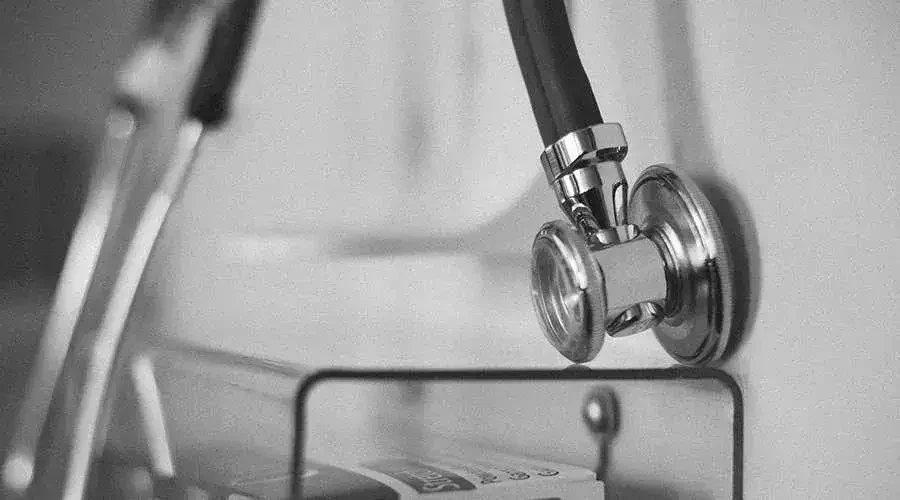
Given the recent approval by Spanish MEPs of the draft law on euthanasia, a specialist doctor warned that this legislation will put pressure on the most vulnerable patients and on the practice of medicine.
The Spanish Congress of Deputies approved on Thursday, December 17, the draft law on euthanasia, a decisive step for its legalization once the Senate process passes.
Some fear that this law will be an obstacle to patients’ access to palliative care.
In a statement to ACI Prensa, palliative care doctor Dr. Carlos Centeno, a professor at the University of Navarra and a member of the Pontifical Academy for Life, stressed that “the new law puts pressure on frail patients and on medicine: it leaves them sick and doctors in a very bad situation ”.
The approval of the euthanasia law “is not something to be celebrated, I am not celebrating it, because I see society differently”. A society with euthanasia, he stressed, “is not a good model for either medicine or society.”
He indicated that some patients, very few in total, “will choose to exercise what they interpret as a right. But what about the others? Because I am worried about what is happening to all those with advanced diseases, with progressive and irreversible diseases ”.
“What happens to most seriously ill patients who do not request euthanasia? Euthanasia sends the message that there are lives that are not worth living in circumstances of illness. Some patients will not feel well when they are suffering and need resources, when they need to be hospitalized for specialized palliative care. Or when they need special treatment to relieve pain. Or when the disease does not progress quickly, but slowly, and the deterioration is slow. What message does society send to these people? What message does euthanizing these people convey?
One of the arguments of the promoters of the euthanasia law in Spain is that it offers the option of ending life without suffering to those who demand it, without affecting other people. However, Dr. Centeno rejects this argument.
“I do not understand that the rest of the people are not affected. Of course it affects them “, he insisted. “We will have to put reasons on the table to ask for resources for patients with ALS, patients with advanced cancer … I’m not talking about hypotheses, but about what is being experienced in other countries.”
Dr. Centeno, however, does not believe that the law calls into question palliative care, but rather questions medicine, “in general the care professions, the health professions.”
“Among the purposes of medicine is the administration of a drug to hasten death. The purpose of medicine is to heal and improve, “he said.
The problem, he argued, is that the success of medicine in recent years, a success that comes at the hands of technology and therapeutic possibilities that did not exist before, “put healing as a paradigm of medicine. But we all know that the essence of the doctor is to alleviate suffering.
“We, the doctors, want to be there, with our science, with our humanity, we also want to be with the patient because we train and we train to make it easier for them. The essence of medicine is easier than healing. “
However, due to the success of healing medicine, it seems that “when you cannot heal it is a failure. Then comes euthanasia. “If I can’t heal, if I don’t live, if I don’t live well, if I suffer, then it doesn’t make sense, this is a failure. In short, “the essence of medicine is lived when we can not heal and when we are with the patient who helps him.”
Dr. Centeno also stressed the situation that doctors will have to deal with from now on. The doctor, he said, is with the patient and “until science works and the painkiller works, and the medication becomes effective, until then we also suffer.”
And in what situation do they put us when, doing everything we can to relieve the patient, I have the “key” in my right pocket so that it ends? What happens to the doctor, that professional, the nurse, who is exhausted after prolonging the day because another patient arrives and another patient and another patient, what happens if he has the key in his pocket so that the suffering ends of the patient and yours? “.
“Certainly, this suffering could be alleviated with a little more time, with a consultation with a colleague or with a more in-depth evaluation,” he explained.
He regretted, therefore, that “the concept of medicine is changing. The model of society, which introduces a law of euthanasia, is a model in which the value is not to accompany the sufferer. It is no longer an absolute value, the absolute value for medicine is no longer to alleviate and heal when possible, but to ease and heal when it is possible to endure more until the end, if we can ”.
“Although we are few, we will continue to defend a model of society and a model of medicine that are radically different from those proposed by a society with euthanasia,” he concluded.